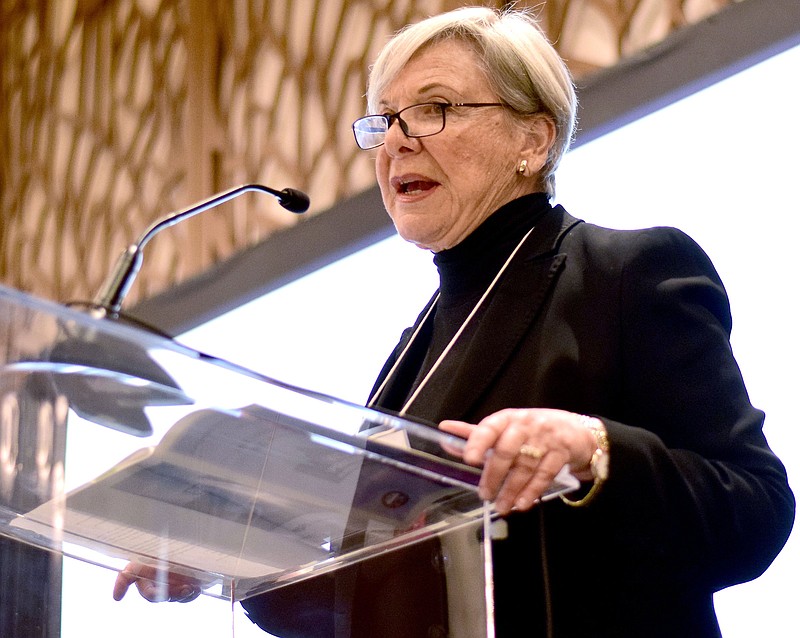This is the third year the Statewide Women's Policy Conference has convened in Chattanooga, and Carol Berz has noticed a trend.
"When we were planning this, we said 'This is the third year we're doing this conference, and not much has changed,'" said Berz, a member of the Chattanooga City Council and conference chairwoman. "We understand that we can march, and we understand that we can yell, but we also understand that these decisions are made in the boardroom."
In Tennessee, women are sorely under-represented in government and earn about 81 cents for every dollar a man earns, according to the annual report card shared at the conference from the Institute for Women's Policy Research. That is despite the fact that a higher percentage of women than men are registered to vote in Tennessee - 63% of women versus 59% of men - and more of them exercise their right to vote - 49% of women versus 47% of men.
"We should be the agents of change for the policies that affect us," Berz said. "This is not a Kumbaya conference. This is show your strength by speaking up."
Tennessee's dismal grades on a report card from the Institute for Women's Policy Research delivered nothing but Ds this year in the seven categories the institute measures.
"Poverty is getting worse in Tennessee, unfortunately," said Elyse Shaw, senior research associate at the Institute for Women's Policy Research. One in four black women lives in poverty in Tennessee, she said. And among single women with children in the state, only one in four has economic security.
Access to paid family leave is a crucial element of creating economic security for women and families, Shaw said. State workers will have access to 12 weeks paid family and medical leave beginning March 1, and that's a start, Shaw said. "Baby steps," she said. "Any progress is good progress."
Jeannine Carpenter, interim executive director and director of Research and Policy for the Women's Fund of Greater Chattanooga, called that new measure "truly amazing, but it's just a first step.
"It doesn't include our teachers or those of us who work at private companies," she said. "We can make change, but change takes time. Put on your comfortable shoes, because it's not going to be a short walk."
Marian Ott, president of the Tennessee League of Women Voters, applauded the 100th anniversary of women gaining the right to vote, but pointed out that even that victory came slowly, and in stages.
"We have to remember, that only gave people who look like me the right to vote," she said. "It took the Civil Rights Act and the Voting Rights Act for everyone to have that access."
Women's issues are not partisan, Berz said.
"The issues we face are not Republican or Democrat or independent or all the labels we put on things to minimize them," she said. "They're human issues."
Contact Mary Fortune at mfortune@timesfreepress.com or 423-757-6653. Follow her on Twitter at @maryfortune.
Tennessee Report Card: Indicators of Social and Economic Well-Being for Women
Political participation2015: D-2018: D-Ranked 38 in the nationEmployment and Earnings2015: C-2018: D+Ranked 38 in the nationWork and Family2015: D2018: DRanked 41 in the nationPoverty and Opportunity2015: D2018: DRanked 40 in the nationReproductive Rights2015: D-2018: D-Ranked 47 in the nationHealth and Well-Being2015: D-2018: D-Ranked 45 in the nation

